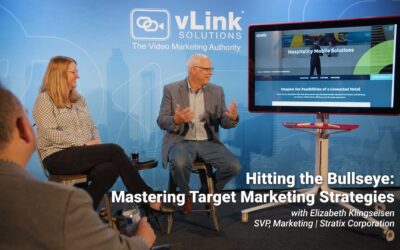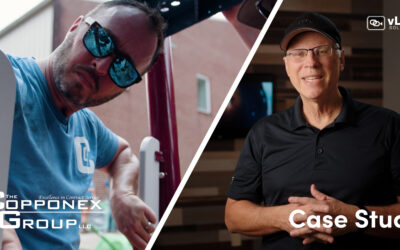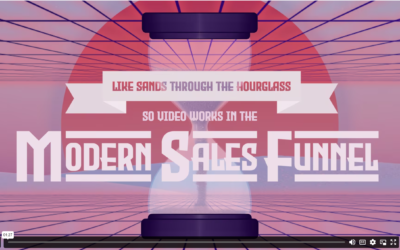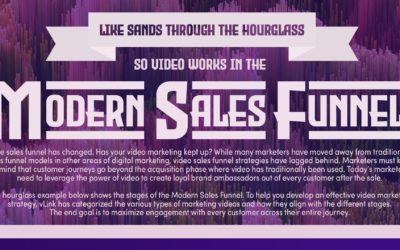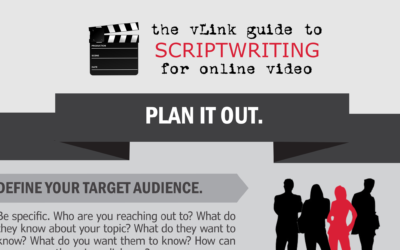
Video marketing is an integral part of any successful marketing campaign. It allows businesses to reach a wider audience, connect with their target market, and create a lasting impression. We’ve seen this firsthand, but with so many businesses vying for attention, it can be challenging to stand out from the crowd.
This is where we see the power of storytelling playing a part.
In fact, storytelling has been a fundamental part of human communication since the beginning of time. From cave paintings to Shakespearean plays to modern-day movies, stories have always been a way for us to connect with each other and understand the world around us. When it comes to video marketing, storytelling is essential because it allows businesses to create a connection with their audience, establish trust, and ultimately, drive sales.
Let’s look at why storytelling is important in video marketing:
- Stories are memorable – We are wired to remember stories more than we remember facts or statistics. We are also more likely to stay engaged longer when information is shared through a story. When we hear a story, our brain releases dopamine, a chemical that is associated with pleasure and reward. This means that when we hear a good story, we are more likely to remember it and share it with others.
- Stories create a connection – People buy from people they like and trust. By telling a story, businesses can create a connection with their audience that goes beyond the product or service they are selling. When we hear a story, we can relate to the characters, their struggles, and their triumphs. This creates empathy, which is a powerful tool for building trust and loyalty and can lead to brand advocacy.
- Stories make complex ideas simple – Sometimes, it can be challenging to explain complex ideas or concepts to an audience. This is where storytelling can be particularly useful. By using metaphors, analogies, or anecdotes, businesses can simplify complex ideas and make them easier to understand. This can be particularly useful for businesses that sell products or services that are technical or complicated.
- Stories can differentiate your brand – We want our brands to stand out from the competition. By telling a unique and compelling story, businesses can differentiate themselves from their competitors and create a lasting impression on their audience. A good story can be the key differentiator that sets a brand apart from its competitors and makes it more memorable.
- Stories can evoke strong emotions – When businesses tell stories that evoke strong emotions such as joy, sadness, fear, or anger, they create a memorable experience for their audience. Emotions are powerful drivers of behavior, and they can influence our decision-making process. By evoking strong emotions in their audience, businesses can create a sense of urgency and motivate their audience to take action.
- Stories can inspire action – The ultimate goal of video marketing is to inspire action. Whether it’s to make a purchase, sign up for a newsletter, or share content on social media, businesses want their audience to take action. By telling a compelling story that resonates with their audience, businesses can inspire action and drive results.
We’ve learned that the most successful stories in marketing not only use these 6 tactics, but they also make the customer the hero of the story (not their brand)! We always want the customer to feel the benefit of what the brand is selling, and video is the best tool to paint that picture. As the saying goes, “Facts tell, but stories sell.”
Search vLink’s Resources, News, and Events
vLink Solutions is always adding new tips and tricks, case studies, infographics, and more.
vLink Insider Event Recap
We invited the vLink Insiders to our Marietta studio for an exclusive event with Elizabeth Klingseisen, Marketing SVP at Stratix. Founded in 1980, Stratix is the leader in mobile solutions for enterprises. Their Smart Mobile programs ensure their clients have the...
Onboarding Videos: A Powerful Tool for Building Company Culture – Case Study
We made a new friend in 2022: The Copponex Group. The Copponex Group is an exploding business that installs and restores playgrounds and all other amenities in the parks and recreation space. At the time that they approached us, they were experiencing a problem:...
vLink Featured by Sales & Marketing Management: “How to Align Video Throughout the Customer Journey”
“The traditional funnel takes a company-centric approach that’s often focused too much on net-new growth. In reality, customers can fall out of a funnel at any time. That includes post-sale, too! It’s up to us – the marketing team – to provide a safety net of customer-centric actions that fall across all functions to keep them as a customer,” said Pedowitz.
5 Video Types To Create Brand Advocates
Video marketing is an effective way to engage customers and build brand awareness. With the popularity of video content on websites and social media, businesses should be leveraging video marketing to turn customers into brand advocates after the purchase.
Interactive Video Lets the Viewer Drive the Story – Case Study
Stratix Corporation creates and manages mobility programs to transform mobile support for some of the most iconic brands around the globe. We are always excited to work with them. Recently, they challenged us to create a series of interactive videos that show various...
How to Create Video That Will Make Viewers Pause and Stop The Scroll
Is your video content pause-worthy? If not, your company is missing out. At vLink Solutions, we developed a method called PAUSE Planning℠ to create binge-worthy content strategies for our clients.
The Modern Sales Funnel for Video Marketing
The sales funnel has changed. Has your video marketing kept up? With so many customer journey models, it is challenging for marketers to know when and how to use video effectively in their company’s model.
Leveraging a Third-person Voice – Case Study
LeasePlan is one of the world’s leading fleet management and driver mobility companies, with over 1.8 million (oops Scott said 18 million) vehicles under management in more than 30 countries. Their U.S. headquarters is in Alpharetta, Georgia, and has been a vLink...
Humor Works for Revegy – Case Study
It’s always a good day when our friends over at Revegy, creators of an account-based sales execution platform, give us a call to produce some content. They were in search of a fun and entertaining way to highlight and overview their software using visuals and...
Discover the Modern Sales Funnel: Infographic
vLink Solutions designed this modern sales funnel and infographic as a roadmap for businesses and organizations looking to leverage video marketing.
The vLink Guide to Scriptwriting for Online Video: Infographic
So you want to make a video to support a new product, program or campaign? Video marketing can be the most effective way to reach your audience. According to Business Insider, the number of people watching videos online reached 244.4 million in 2020 and is only going...
3 Steps to Make Your Video Scripts Irresistible
Scriptwriting is one of the most important steps of the video production process. It is also the step that we find companies struggle with the most. While many adults have been schooled in writing, script writing is a different skill altogether. Poor script writing...
Make Hybrid Events Worth Every Dollar for Virtual Attendees
Published in Smart Meetings on 6/9/22. The average price for a paid virtual event is $443. Are virtual attendees seeing value? It depends. “To demand a fee, digital events must boast compelling content and a seamless experience. According to Kim Myhre, founder of...
Elevate Your Virtual Events to Engage Seven-Figure Clients and Prospects
This article was published in CMW on 4/27/22. Webinars are standard fare for general audiences, but how do you host virtual events that engage clients and prospects representing millions of dollars in potential revenue? At this level, the game changes. Expectations...
How Hybrid Events Have Evolved—and 9 Ways to Prepare for What’s Next
We asked 11 top event professionals for a widespread view of what works now in hybrid event production—and what needs to happen to make this an effective, long-term event format.

